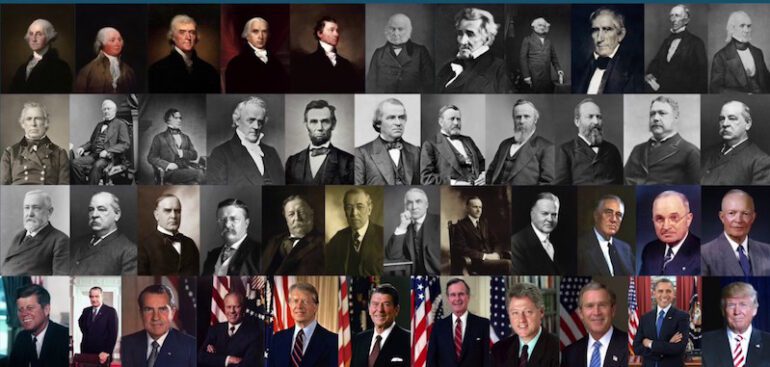BY Claire Volpe
Presently, and more historically, women have been critically seen as too “hormonal”, “emotional”, and “weak” to hold positions of power, particularly those in government. A YouGov poll from 2018 asked Americans: “do you personally hope that the United States elects a woman president in your lifetime, or not?”. More than 117 million Americans responded to this with “no”. More specifically, 59% of republicans responded with “no”, 89% of democrats responded “yes”, and 63% of independents responded with “yes”. Why is America hesitant to support and encourage women taking on leadership positions, such as that of the face of this nation?
In all the years since Washington himself stood as a national leader and symbol of American ideals, we haven’t had the privilege of having a female sit in our Oval Office. This is not because women aren’t qualified for the position, severely lack decision-making skills, or because women aren’t ambitious or assertive. This is because many Americans associate leadership skills and the execution of plans as more of a male strength. Sexist mindsets amongst the people have resulted in a lack of female presence in the White House and government overall.
Former Prime Minister of New Zealand, Jacinda Ardern, received record high approval ratings to show for her efforts, specifically in her COVID-19 Pandemic response and containment. Citizens were extremely pleased with Ardern’s reliability, quick responsiveness to public concerns, and unification of the nation with promising and encouraging words. Namibia’s Prime Minister, Saara Kuugongelwa, has been applauded for her success in lowering her nation’s poverty, creating legislation to ensure wildlife and environmental protection, and creation of a gender-inclusive government, with 38% of women holding ministerial jobs. Observing numerous achieved female leaders in other nations has proved that the U.S would politically and socially benefit from such progressive governmental alterations. Even in our own nation, as former House Speaker, Nancy Pelosi played a significant role in successfully and efficiently passing numerous bills, a few being the Inflation Reduction Act, the Investment and Jobs Act, and American Clean Energy and Security Act. Considering this job requires persistence, management and leadership skills, and someone to maintain order, it can be said that throughout her career, Pelosi successfully tackled the many problems the House encountered.
Women’s underrepresentation and underappreciation in the workforce, STEM fields, CEO-type roles, and much more have connections to the deep-rooted patriarchy in the U.S’ history. Men have historically held more political, social, and economic power, and have had more opportunities to pursue authoritative duties. Even after attending Stanford at sixteen and graduating third in her class in law school, Sandra Day O’Connor was denied many legal jobs and faced a lot of bias for being a woman. Before becoming the first woman on the U.S Supreme Court, she worked without pay for the county attorney of San Mateo. Those who view women through the lens of traditional femininity must substantially expand their mindsets. Viewing us stereotypically as home-oriented, inferior, and submissive to men is destructive and harmful. Our sense of femininity doesn’t stand as a disadvantage, but as an asset and as a great strength. Women’s self-awareness, compassion, and patience are notable traits that should be embraced, rather than rejected. We cannot associate certain traits with weakness, as each individual has so much to offer. Leaders’ emotional intelligence holding a substantial place in the U.S government would be incredibly influential for future leaders, and further, would create a larger sense of connection and transparency between the people and the president. Women have so much to offer to politics, if only we would just provide them with opportunities to be leaders.
For female candidates, seeking the role of president can be dispiriting, as the challenges of gender inequality tend to glare down at them, daunting them at every move. Hillary Clinton had lost the 2016 presidential election and stated: “It should not be an impossible task for more women to achieve their own goals… But we face what is a pernicious double standard that is aided and abetted by the idea of perfectionism.” Although she had won the popular vote by 2.9 million, she lost the electoral college, leaving many voters disappointed with this outcome. The standardization of sexism, stereotypes, and double standards seem to set women back and discourage women from standing as a successor for president.
We Americans need a female president, as she would bring a whole new meaning to the term “girlboss”, and introduce a fresh perspective to the government and to this nation. Women seeing women gaining a greater sense of authority would encourage them to seek such positions themselves. It’s significant that women feel inspired and motivated to achieve their goals, even if others tell them they shouldn’t or can’t. Further, it would provoke equal wages, more diverse workplaces, and the normalization of marginalized individuals accessing male-dominated opportunities, especially those in politics. Although we’ve made progress to reach this goal by having female presidential candidates and Kamala Harris as our vice president, we need to see a woman in the White House. By opposing gender bias and encouraging women’s political empowerment, a female president would altogether challenge the historically accepted and ingrained, but sexist, ideals that this nation holds. While traditions connect us to our roots, the way we uphold our lineage of only male presidents confirms that we must establish new traditions. If the face of this nation was a woman’s, she would promote women having greater political involvement, push women to pursue male-dominated careers, and further transform public view on female leaders while challenging expectations and traditional gender roles.
Claire Volpe is a graduate of Avon High School in Connecticut, and will be attending Fairfield University in the fall of 2023. She notes the lack of diverse perspectives in the U.S government from her Government and Politics course. This piece expresses her advocacy for a female president, as a woman in such a position would push for greater opportunities for women in America, as well as around the world.

